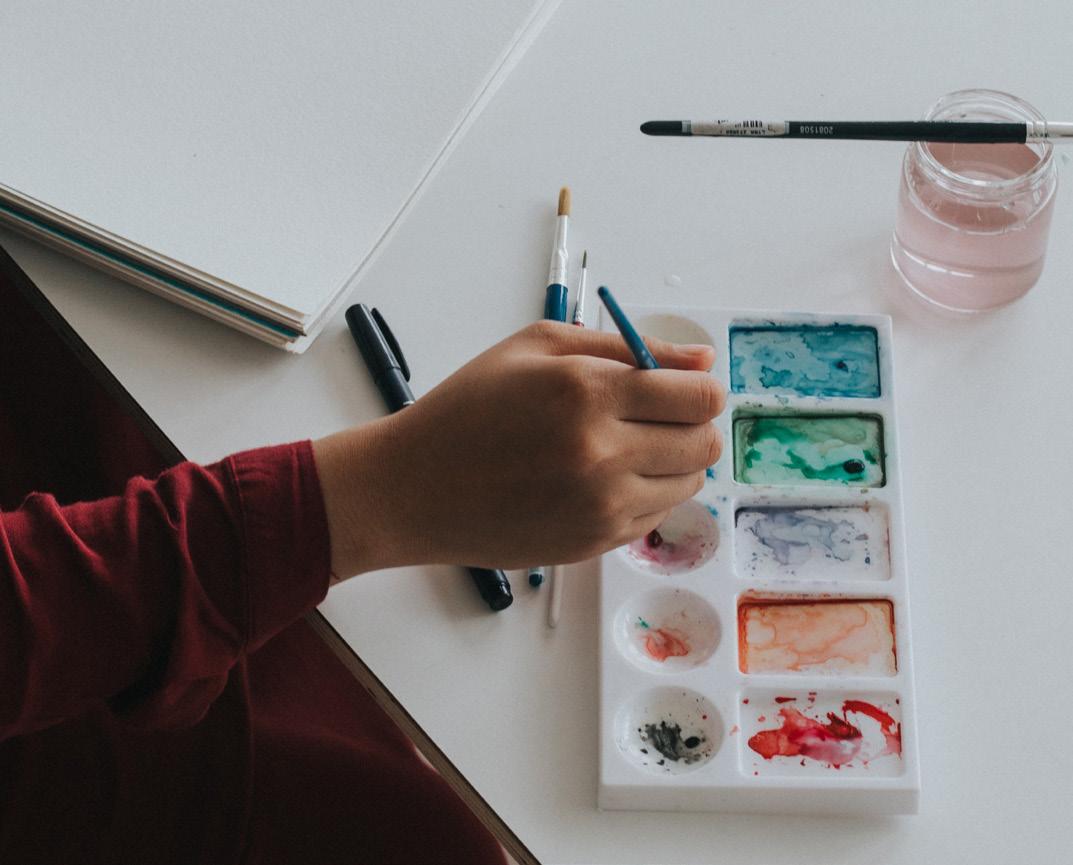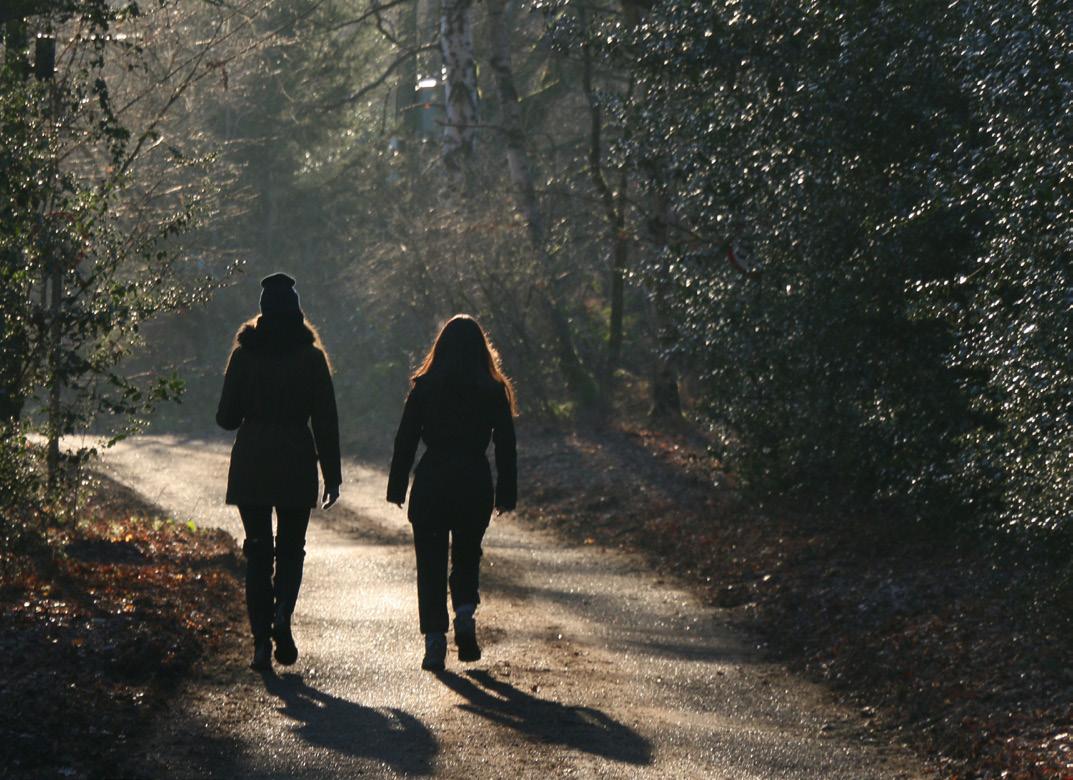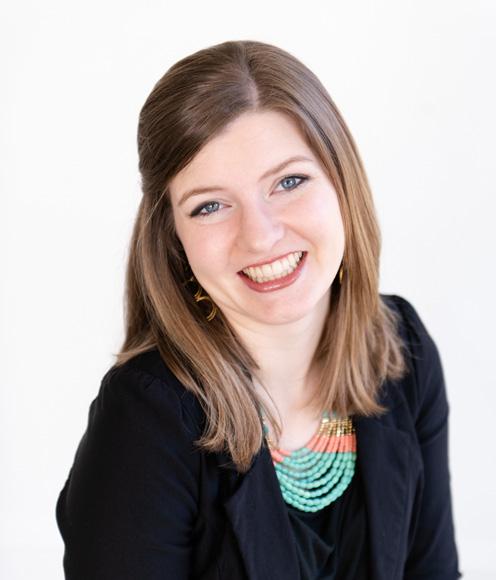
5 minute read
Unstacking Your Grief Tower Lauren Wells
Unstacking Your Grief Tower
By Lauren Wells
Advertisement
The TCK life is an ampersand (&)—both good and hard. Both joy filled and grief filled. While it is good to talk, think, and dwell on the good, we can’t disregard the hard and the impact that has on our lives as kids, teens, and adults. Unfortunately, the hard and its impact doesn’t go away when we turn eighteen. We don’t get to begin adulthood with a clean slate. Instead, we carry the hard with us. Throughout our growing-up years, all of the losses and grief-inducing experiences have stacked up like blocks, building a tower higher and higher throughout our developmental years. Because of our unique lifestyle, we didn’t often have opportunities to unstack our growing Grief Tower, or, when we did, the processing only touched on the “key” moments.
In my years of work with TCKs of all ages, I’ve found that most TCKs enter their adult years with a Grief Tower over twenty blocks tall. At that point, it takes only a relatively small stressor (i.e. a difficult first year of university, a conflict with a friend, or a challenging job situation) to tip the tower over. It is common for this collapse to occur between the ages of eighteen to twenty-five.
My Grief Tower crashed down during my sophomore year of university. I had not processed any of the many grief-inducing experiences that had happened during my years living as a missionary kid (MK) in Africa. Instead, I had charged ahead, feeling numb when I thought back to that time and place, as if those memories were emotionally off-limits.

During my university years, I began having horrible nightmares. Often, they took place in Africa and I always woke up screaming, sweaty, and panting. Around the same time, I discovered an unexplained, quarter-sized bald spot on my head, was battling never-ending cold sores on my lips, and had constant stomach aches. I went to the doctor and was told everything was fine; that I should take vitamins and try changing my diet. Through a series of events, I ended up in counseling. My wonderful therapist specialized in trauma and I quickly learned that every physical symptom I was experiencing was a fairly common response to complex trauma (C-PTSD) and toxic stress. My Grief Tower had stacked too high and I was now experiencing the crash.
So what can we do to prevent or resolve a crashed Grief Tower?
It is important that we take the time to consider the blocks on our Grief Tower and then intentionally process each block.
Think about the losses, grief-inducing experiences, intense moments of fear, and family crises that have occured in your life. List them from present going all the way back to the first that you can remember.
Each of these is considered a “block” on your Grief Tower. These blocks can begin to be processed by thinking through the following questions and considering the answers for each block.
Grief-Processing Questions:
1. What emotions did I feel in that season or situation?
2. How did it feel in my body?
3. How has it influenced my thought processes going forward?
4. How has it influenced my actions going forward?
5. What do I want to take from the experience and what do I want to leave behind?
6. If I haven’t talked about this aloud yet, who is one safe person I can tell?
7. Do I need outside help to move forward in a healthy way?
You can think through these questions while engaging in a variety of grief-processing methods.
Art Processing: Art processing is one of the most effective ways to process grief because it engages both sides of your brain. You can paint a representation of that season or event, color mindlessly while thinking about the questions above, create a sculpture that characterizes that moment or season, etc. Be creative!

Nature Processing: Nature processing simply involves getting outside with the purpose of thinking through the blocks on your timeline and the Grief-Processing Questions. This could be going for a hike, fishing, sitting on the beach, laying in a hammock or anything that allows you to be in nature and free to think intentionally. Often being outside brings a sense of calm and clarity that can help with processing.
Journal Processing: Spend time writing about the block you are processing. You can answer the questions in written form, write as if you’re writing a letter to someone, write out prayers, write your story in third person, use bullet points, etc.
Verbal Processing: Sometimes you just need to talk through it! Process out loud with a parent or trusted friend. It is often helpful if you tell them that you are wanting to process with them, explain what you’ve learned, and even show them the Grief-Processing Questions.

Exercise Processing: Engaging in a physical activity such as running, weight-lifting, yoga, etc., can be a helpful way to process. Take the time to think through the Grief-Processing Questions while you’re exercising (so don’t listen to a podcast or other distracting audio input at the same time!).
Other options: Write a song, write a poem, process while cooking, draw a comic strip, create digital art, write a play script, choreograph a dance. Processing is not easy nor is it an exact science, but I pray that you have begun to see the importance of bravely writing out and processing your Grief Tower and that these practical ideas help you to do that effectively.
My book, The Grief Tower: A Practical Guide to Processing Grief with Third Culture Kids gives an in-depth education on the concept of the Grief Tower and how to unstack it. It is written to the audience of parents of TCKs and TCK care workers, but the information can certainly be applied to adult TCKs. In fact, a version specifically written to adult TCKs is in the works and will be available soon. You can purchase The Grief Tower on Amazon and Kindle.

Lauren Wells is the Founder and Director of TCK Training and author of Raising Up a Generation of Healthy Third Culture Kids: A Practical Guide to Preventive Care and The Grief Tower: A Practical Guide to Processing Grief with Third Culture Kids. She specializes in practical, preventive care for third culture kids and their families. She has worked with over 1,000 parents and TCK caregivers and has trained staff from over 60 organizations. Lauren spent her developmental years in Tanzania, East Africa, and now lives in South Carolina with her husband and two children.


